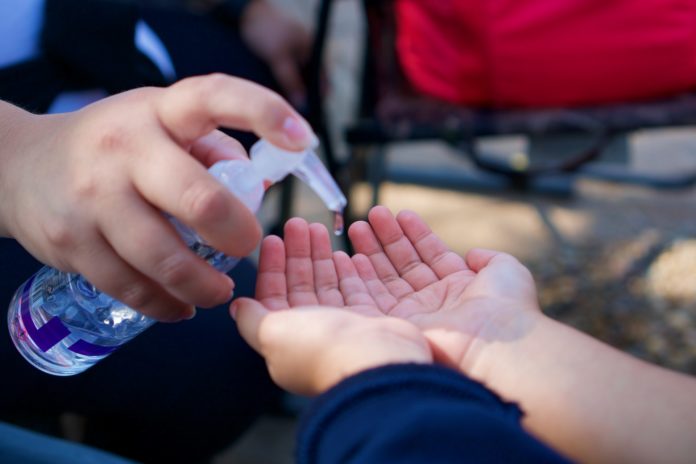Introduction
Hand sanitizers have been around for decades. However, with the pandemic wreaking havoc, hand sanitizers have become an indispensable part of life. Yes, soap and water reign supreme if you want to control infections. But it may surprise you to know that soap doesn’t kill germs. It only removes them from your hands. And that is where a problem can arise. If your handwashing doesn’t cover all the areas, you will be left with harmful germs on your hands.
Ideally, you should wash your hands thoroughly with soap and water first. After they are dry, apply hand sanitizer on your palms and rub carefully. However, when you are on the way to work or out camping, soap and water may not be available. This makes it vital to always carry hand sanitizer on your person when you leave the house.
The question arises; how effective are sanitizing gels and sprays especially made to rid us of hazardous germs and viruses? In these trying times, arming yourself with facts is essential.
Let’s find out more about a product that has become a vital part of your life.
1.Sanitizers can be vital in some situations
While soap and water trump sanitizers by any yardstick, there are some situations where sanitizers are indispensable. Handwashing with soap and water is ideal when you want to get rid of dirt and germs. This is only true if you wash your hands thoroughly. And while it’s true that hand sanitizers pale in comparison to soap and water, they can be a strong defense against deadly germs in places like hospitals. If you are visiting a loved one at the hospital, sanitizers can defend you and the patient you are visiting from life-threatening germs if you use them before and after meeting the patient.
2.All sanitizers are not the same
The medical fraternity recommends that sanitizers have at least 60% alcohol. If your hand sanitizer has a lower percentage of alcohol, you may not be as well protected as you think. With a low alcohol percentage, your hand sanitizer will be effective only for some types of germs.
Next time you go shopping for sanitizers, read the fine print. Anything less than 60% is not going to help you or your family.
3.How to use a sanitizer
Slathering a dollop of hand sanitizer on your palm is not going to kill more germs. All you need is a coin-sized drop of sanitizer. Once you have squirted it on your palm, rub it carefully on all the areas of your palms until your hands dry. Don’t forget the area between your fingers.
Hand sanitizers don’t have an expiry date, and you can invest in a 5-liter hand sanitizer to not stretch the budget strings. However, if the alcohol in the sanitizer evaporates, it becomes ineffective.
4.Things not to do with sanitizer
Since hand sanitizers are alcohol-based, they can cause alcohol poisoning if swallowed. Due to fears related to the pandemic, there are instances of people gargling with sanitizers. This must be avoided at all costs as it can be life-threatening.
5.Hand sanitizer use when and where
Hand sanitizers come in handy when you are out of the house. You can also use them after using the bathroom or before preparing a meal if soap and water are unavailable. Sanitizers are a must in hospitals and clinics, where chances of transmission of germs are high. Places like colleges, schools, and public transport can be hotbeds of germs and viruses. So, hand sanitizers should be used in these situations.
Offices and colleges can keep hand sanitizer 5 liters available for staff comfort.
6.Are hand sanitizers effective on dirty hands?
Sanitizers are effective, even in environments like healthcare facilities and clinics, where there is a chance of your hands coming in contact with germs.
If your hands are dirty or muddy, such as after a game of football or cricket, sanitizers may not be as effective. You would need to wash your hands with soap and water first to get rid of the grime before you use it.
7.Are homemade hand sanitizers effective?
The internet is flooded with recipes on how to make hand sanitizer at home. However, homemade hand sanitizers can be ineffective if not made correctly. And as there are risks of skin burns during the process, it’s best to leave this to the experts.
Making a hand sanitizer more effective by adding rubbing alcohol to the bottle is not going to cut it, and it is best not to try making sanitizers at home.
8.Do cleaning products make good hand sanitizers?
It is not advisable to use disinfectant sprays and cleaning wipes as replacements for hand sanitizers. These products are not made for your skin but hard surfaces. Inhaling, ingesting, or using cleaning products to prevent coronavirus infection is unsafe.
9.Can hand sanitizers tackle all microbes and germs?
There are a vast number of microorganisms in existence. Hand sanitizers don’t work on all the microbes on the spectrum. While hand sanitizers tackle a large majority of germs, they can’t kill them all.
10.Will frequent use of hand sanitizers dry out your skin?
Soap strips the skin of oil and moisturizing your hands every day is necessary. However, alcohol-based sanitizers are easy to use, and as they condition the skin, there is no chance of dryness.
Conclusion
With evolving viruses and mutations, hand sanitizers are here to stay. Arming yourself with an effective hand sanitizer is essential if you want a healthy, stress-free life.











